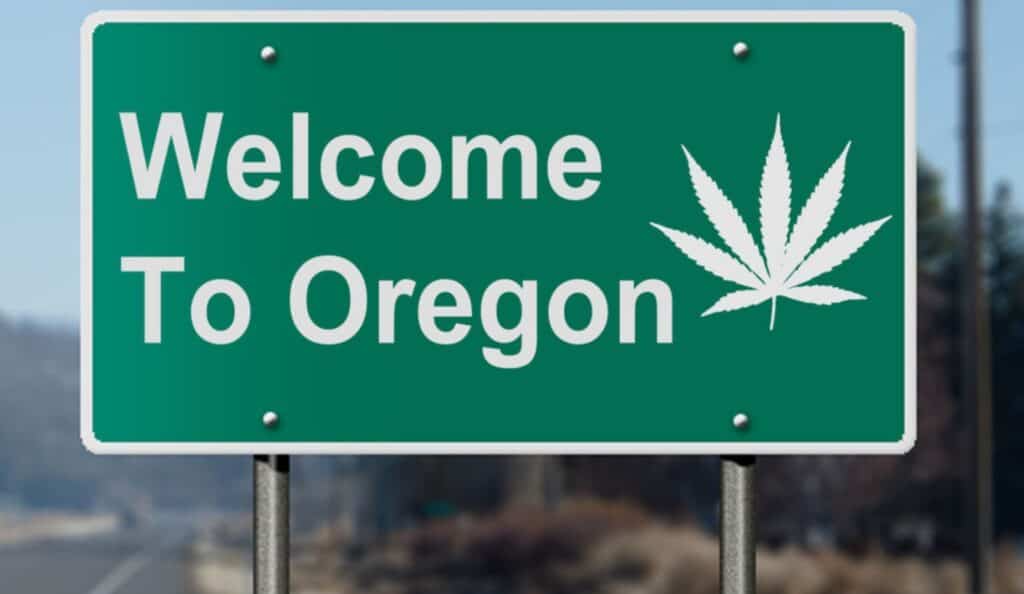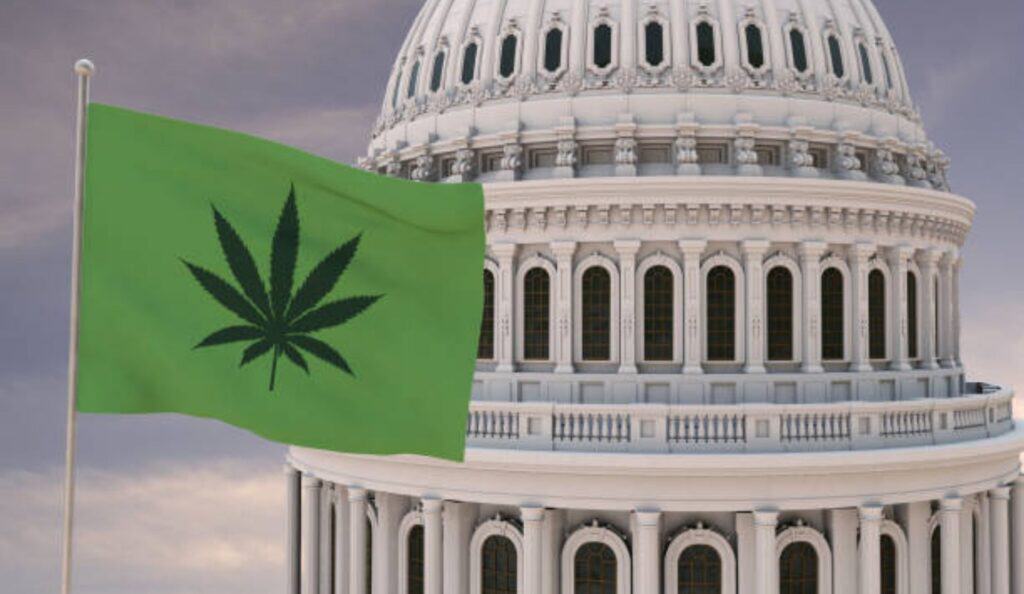
By Karen Henriques February 25, 2025
Marijuana has now become legalized for recreational consumption in 24 states, although a few have restrictions against the overuse of the substance by individuals. There are also federal crimes involving sales, and driving under the influence of a drug whose possession is prohibited while on federal properties. California became the first state to legalize medical marijuana when it did so in 1996; years ago, that was a step toward legalization. Other states have followed suit with similar legislation. The legalization of marijuana for recreational or medical uses prevented an individual from giving ideas and constructing a marketplace with customers in the cannabis industry.
The success of a cannabis business depends entirely on the location since each state has its regulatory frameworks, dynamics of the market, and systems supporting it within an industry. Such recommended US states include regulatory environments, market demand, social equity programs, and an innovation ecosystem, making them some of the best states for startup cannabis businesses. Such states will open doors to various opportunities for an entrepreneur-cultivator, processor, and retailer. It is vital to make a sound choice vis-a-vis the top states for fitness within your business to secure the best position in this rapidly developing industry.
States to Start a Cannabis Business
The legalization in states for cannabis is breaking the ground for a lot of new businesses in the cannabis industry, especially those wishing to run across several states. There are many states which are promising for economic expansion. Each of these states offers different attributes that can promote the flourishing of cannabis businesses.
Oregon

Oregon is indeed an ideal choice for cannabis start-ups, given the weather conditions, regulatory facilitation, and considerable market demand. Notably, the climate within the Rogue Valley and Willamette Valley is perfect for high-quality outdoor and greenhouse growing and entices both local and non-local consumers. Within such a regulatory framework, different license types such as cultivation, processing, and retail are allowed which promotes the smooth operation of every single stage in the entire supply chain of cannabis. Such ensures fair and competitive market structures that make it easier for newcomers to enter and thrive.
Though little compared to California, Oregon already reflects a fine taste in craft cannabis; it reflects severe standards for premium. The local market and travelers searching for unique experiences have found a captive audience for the artisanal and sustainably grown cannabis that has developed a niche market.
All these make Oregon a highly competitive destination for cannabis entrepreneurs-market demand, regulatory support, and the natural environment. They leverage the natural and regulatory dimensions of the state, and businesses tap into much more natural flourishing markets which feed into the natural evolution of Oregon’s cannabis industry.
Arizona

Having been legalized in 2010, Arizona is witnessing growth in the cannabis industry. Cannabis product and service demand due to a personnel base, combined with the competitive nature of the market, has led to increasing sales with the acceptance of both medical cannabis and recreational cannabis by consumers. Veterans in the market will, therefore, find that these dynamics of the state create a fertile environment for them to come in or expand their cannabis businesses.
Online sales coupled with the home delivery of cannabis products is one salient feature of Arizona’s cannabis market. These conveniences excited both the consumers and businesses in that products can be bought online and delivered to consumers’ doorsteps.
The period of evolution starting from the 2010 legalization of medical marijuana and culminating in the 2020 legalization of recreational marijuana makes Arizona a hotspot for entrepreneurs in search of opportunity in the cannabis industry. By studying the regulatory landmarks and market dynamics of the state, businesses can capitalize on such opportunities in favor of their success within the evolving market of cannabis in Arizona.
California
The largest cannabis market in the United States, California still provides opportunities for cannabis businesses despite increased taxes and regulatory hurdles. The vast range of its consumer dimension and the heavy demand for medical and recreational products make it a good venue for cannabis entrepreneurs. Its population of nearly 40 million represents youthful California as the hub of the cannabis industry which is rich with events such as trade shows and conferences with opportunities for networking and collaboration.
California has an established regulatory framework, which brings stability and predictability to its businesses, as long as consumers benefit from quality products, as well as truth in the industry. In fact, the mature market is compatible with profitable enterprises that derive success from navigating the regulatory terrain. In the end, California carries itself as the largest cannabis market in the United States. It is also an innovative ecosystem and robust regulatory base for cannabis businesses. For application in such a dynamic and scalable market, entrepreneurs have to tend to high taxes and regulatory labyrinth barriers.
Colorado

Colorado, the first in the whole country to legalize recreational marijuana, is open to a very competitive market of ganja entrepreneurs. The state, in turn, has created tax structures and initiatives to help lure investment into the market for the safety of the product. The state requires complete testing for marijuana products sold in the state, including potency, contamination, residual solvent, terpene content, pesticide use, and foreign materials.
In effect, this enables safe consumption and eliminates the need for consumers to worry about untested products. Colorado’s progressive laws will allow any enterprising cannabis grower to succeed without having to worry about possible prosecution or civil penalties. Businessmen will then have time to embrace quality for healthy growth. Despite the competition in the state, Colorado has several incentives that still leave it as an attractive state for expansion.
Michigan
Michigan is a premier state for cannabis enterprises due to its permissive regulatory environment and high market demand. The state offers varying licenses from cultivation to processing to retail, and an attractive market for newcomers due to its diverse consumers and well-set distribution channels. Low taxes and low barriers to entry help new businesses to start; the state runs programs for social equity applicants, thus making the industry more inclusive.
Market saturation may be a challenge, with over 500 retail dispensaries across the state, thus making it hard for entrants to differentiate themselves. With the opening of new dispensaries on a daily basis, product prices continue to drop, in part due to the nominal $6,000 licensing application fee and the lack of a cap on the number of dispensaries. While competition is rife, Michigan is still a good place to grow a cannabis enterprise.
New Jersey
Due to its large population and liberal stance on cannabis, New Jersey has a booming cannabis market. Legalizing recreational marijuana in 2022 was the most significant milestone in the state’s cannabis journey. The medical cannabis industry has tremendously grown from more than 250 dispensaries across New Jersey State, with further openings each year, creating thousands of jobs in the retail and cultivation fields. New Jersey’s large population, economic incentives, and progressive attitude toward cannabis make it a prime location for cannabis business ventures.
The adoption of cannabis into the state’s economy has created growth opportunities as well as more avenues for investments and innovations. Hence, any entrepreneur willing to create a foothold early on will reap the benefits of the state’s growth and position themselves strategically for long-term success in the yet-evolving cannabis realm.
Massachusetts
Because of its above-average retail prices, the state remains a promising state for cannabis dispensaries, even with relatively high taxes. Concerning retail sales commencing in November 2018, Massachusetts has a 10.75-percent excise tax rate, a 6.25 percent retail sales tax, and a 3 percent additional excise tax option. The state’s market has proven to be profitable because there is demand for its products.
Costs of doing business in Massachusetts, from real estate to licensing, are much higher than those in some other states. The application fee for the opening of a dispensary is $1,500, plus $10,000 for the annual license fee. Nonetheless, since the application process is easy, within 90 days, licenses are usually granted.
The Massachusetts cannabis market thus has had phenomenal growth since legalization, grossing over $3 billion in sales since May 2022. This tremendous growth has pulled in many businesses and investors, establishing Massachusetts as a market leader in cannabis. Massachusetts presents a great opportunity for cannabis players mostly due to its above-average retail pricing, easy licensing application process, and rapid growth of the market.
Washington

Although Washington’s cannabis industry presents unique regulatory frameworks operating a limited number of retail licenses, it creates one of the most exclusive cannabis markets in the country, preventing oversaturation while promoting efficiency and profit-making. At the same time, indirect regulation involves the quality aspects that relate to the safety of consumers, leading to the establishment of a stable market environment.
A limited number of licenses has provided a good opportunity in an economically undeveloped competitive arena for cannabis businesses in Washington. By obtaining a license, entrepreneurs can now boast of being able to operate in a venture that enjoys clear benefits over competition, better profit margins, and retain customers from a smaller pool. This is something that attracts many investors and business owners to the business.
One pay-off of the low cost of cannabis licensing is that the aspiring owner must have a strong business plan and know how to run a potential winning business in cannabis before getting a license. Such a process eliminates all those who do not mean business in the market.
Moreover, the limited retail licensing creates a unique regulatory framework for Washington, which to a great extent ensures an exclusive and lucrative marketplace for any cannabis business establishment. As strict rules ensure maintaining the level of quality and consumer safety, the state also attracts entrepreneurs with a good business plan.
Alaska

Alaska is definitely a great place for cannabis entrepreneurs because it was one of the earliest movers in the cannabis market and has since seen much growth. It was one of the first states to open up to retail sales in October 2016, and ever since, it has been a vigorous and growing market. In Alaska, the price of licensing is $5,000; however, excise taxes are pretty high with charges of $50 per ounce of flowers and $15 per ounce of stems and leaves. Despite the high excise taxes, Alaska is one of the states with the lowest start-up costs for a dispensary for it has a favorable legal and licensing environment.
Alaska continues to be above average in retail price compared to the national average. This indicates that much of its price is associated with high excise tax rates. A high retail price would translate to a more profitable business, and an active market remains present in Alaska for growth opportunities. Next on the list are other rapidly growing cannabis markets like Arizona and New York, or simply Washington, which is probably one of the largest markets in the entire nation.
This kind of insurance protects against all the risks of anything unpredictable or lawsuits; therefore, it is very essential for businesses in the cannabis industry. It would form part of a strategic decision-making process employed by cannabis entrepreneurs who consider Alaska’s favorable blend of an active market, an excellent licensing environment, and retail prices much higher than those set at the national average. Such entrepreneurs should consider the strategy of entering other states like Arizona and New York and insuring their businesses with cannabis insurance so that they can position their cannabis businesses for success.
Illinois
Illinois has a great standing as a top cannabis market in the United States, demonstrating a commitment to social equity accompanied by a good market. The passing of a loan program of 30 million that aimed at technology transfer expenses for social equity applicants, is commendable. Gov. Pritzker lauded the law-making for creating a fair, accessible, and thriving cannabis ecosystem for Illinois. Illinois sold over $1 billion worth of legal marijuana in 2021 and amassed over an amount of 205 million regarding in tax revenue despite delays in licensing.
The state maintained its development for the industry’s growth in 2022 with sales totaling an amount of one point five billion and tax revenues exceeding $560 million. As players in the national cannabis sector, major multinational operators in Illinois. These firms have taken a considerable standing in the state and further enable the growth and stabilization of the market. Altogether, all the contributions made by friendly legislation, robust market performance, and an abundance of major multi-state operators enable Illinois to have a national stature.
Conclusion

Choosing a state for starting a cannabis business is an important decision that could dramatically affect the success of such a venture. Every state provides different opportunities and challenges; thus, the feasibility of the venture must be assessed accordingly. By understanding the regulatory framework, market demand, legalization, and support systems of these top states, entrepreneurs can make better decisions in setting up and positioning their cannabis business for success in this fast-developing industry.